The COVID-19 pandemic has provided enough food for thought to reconsider public healthcare issues and policies. While we wait for the vaccine, we also get skeptical about its accessibility and affordability. Among other issues, the pandemic has provided an opportunity to re-examine the implications of clinical test data exclusivity on access to medicines.
Article 39(3) of the TRIPS Agreement casts an obligation on the drug regulatory authorities of the member states to protect from disclosure and unfair commercial use, the clinical test data, submitted by drug originators for market approval. So far, Article 39(3) has not been interpreted by the WTO Panels. A WTO dispute settlement panel came close to interpreting the minimum standard of protection under Article 39(3), but the parties, US and Argentina, settled the dispute and an opportunity to interpret the provision was lost (here). Thus, there are divergent interpretations of the provision by WTO members pursuant to their right to address domestic needs (Art 8(1) TRIPS).
The provision finds its interpretation and application mainly through three approaches– first, “data exclusivity”, whereby the drug originator has the exclusive right for a period of time over the clinical test data submitted by it and the test data can’t be relied upon by regulatory authority to grant approval to generics; second, “compensatory approach,” whereby the generic manufacturer can be granted approval on the basis of the originator’s clinical test data in lieu of which the generic manufacturer has to pay a reasonable amount of compensation to the drug originator; third, “data protection” requires the drug regulatory authority to protect the drug originator’s submitted clinical test data from disclosure and from unfair commercial use in line with Article 10bis of the Paris Convention and generics can obtain market approval by proving their bioequivalence to the original drug.
The “data protection” and “compensatory approach” do not prohibit the drug regulatory authorities from relying on originator’s clinical trial data to grant market approval to generic applicants. However, the first approach, “data exclusivity”, completely prohibits such reliance to grant market approval to generics, at least for a limited period of time. During the period of data exclusivity, generic producers are required to submit their own data to prove safety, quality and efficacy of the drug, which requires them to repeat the clinical trials and other tests. Alternatively, generic producers would have to delay the launch of their product until the end of the exclusivity period (here). Though data exclusivity does not mean market exclusivity, it delays the entry of generics into the drug market resulting in lack of competition and higher prices of drugs.
The process of drug development is costly wherein generation of test data requires substantial investment in terms of money, time, expertise and resources. Providing market approval to generics without requiring them to undertake such investment may result in lack of incentive for drug originators. Data exclusivity provides an opportunity to drug originators to recoup such investment costs.
However, looking at the other side of data exclusivity from a public health perspective, it can be an impediment in access to medicines since it delays the entry of generics. If the period of data exclusivity extends beyond the term of patent protection, it ensures lengthened de facto market exclusivity for the original product (here). Data exclusivity would effectively render compulsory licenses inoperative by preventing the registration of medicines produced under a compulsory license. Besides, if data exclusivity is also granted when an existing medicine obtains marketing authorization for a second or new indication or for a new form, as in the case of a pediatric version of already approved drugs, data exclusivity could be used to extend the period of exclusivity of the originator product. Data exclusivity is not related with patent status of the originator drug. Thus, data exclusivity could prevent the registration of generic version of originator medicines even when there is no patent on the medicine (here).
Being the first country to incorporate data exclusivity provisions, the US was the strongest proponent of data exclusivity during the TRIPS negotiations. However, data exclusivity was not incorporated as the minimum obligation under Article 39(3) of TRIPS (here). Still through free trade agreements (FTAs), the US has introduced data exclusivity (among other TRIPS Plus provisions) in other countries. Data exclusivity has resulted in high drug prices in some of these countries (here).
Data exclusivity is not always a suitable form of protection of clinical test data for middle and lower income economies. Data exclusivity in such countries negatively affects access to medicines due to lack of personal capacity to manufacture the medicines, or inability of the government to purchase costly original patented drugs (here). They are largely dependent on the cheaper generic versions. The market of generic drugs in such countries is significantly affected by data exclusivity provisions.
Imposition of data exclusivity on a country irrespective of its socio-economic capacity and pharmaceutical manufacturing capability may have negative implications. While it is important to protect the R&D investment of drug originators for producing the clinical test data, it is equally important to ensure access to pharmaceuticals. To achieve a balance between the economic interest of the originator companies and public interest in access to medicines, instead of data exclusivity some alternative approaches maybe considered, like preferential pricing, tax benefits, special benefits from the originator companies for patients of least developed countries, etc.
As opposed to the traditional view of generics as only the “copiers” of patented drugs, generic companies should be encouraged to enter into research based medicinal product formulation. This might help in ensuring that underprivileged populations of the world will not be dependent on generic medicine only since entry of generics in some situations may be curbed due to regulatory provisions such as data exclusivity. This can be done by planning proper R&D for generic manufacturers to develop innovative drugs, besides generic versions of patented drugs (here, here, here).
Utilizing the TRIPS and FTAs Flexibilities
Nation states, especially middle and lower income countries, need to be cautious of their measures for protection of clinical test data since it can have extreme consequences on economic affordability of medicines. If a country, for some reason, does grant data exclusivity, it is important to limit its potential negative implications on access to medicines. Countries that have signed the FTAs can limit the scope and provide exceptions to data exclusivity in their national regimes. Countries which have not yet signed such FTAs need to be vigilant of the consequences (here).
It is important to adopt a creative and access-oriented approach while adopting measures for protection of clinical test data in free trade agreements and in national laws to ensure adequate access to the products of such test data. This can be done by effectively utilizing the flexibilities in the TRIPS agreement and FTAs. In 2016, Owais H. Shaikh developed the Index of Data Exclusivity and Access (IDEAS) to analyze the provisions of clinical test data exclusivity in free trade agreements and national laws of countries to determine how efficiently the countries utilize the TRIPs flexibilities and options in free trade agreements to improve access to medicines. He concluded that countries do not sufficiently make use of such flexibilities for ensuring access to medicines pursuant to test data exclusivity measures.
The parameters for evaluation undertaken by Owais H. Shaikh serve as important guidance for countries for utilizing flexibilities to ensure access to medicines. Some of these can be summarised as follows:
- The elements of Article 39(3) are not defined in the TRIPS agreement. Thus, member states can determine the scope of “new,” “considerable effect” and “chemical entity” keeping in mind their socio- economic needs. Exclusivity for clinical test data for new indications should be avoided.
- Provision to end test data exclusivity at the expiry of the patent term can be included.
- Member states, especially middle and lower income countries, should restrict test data exclusivity to a shorter duration. The originator can be required to file national application within a fixed time period of first foreign approval to enjoy exclusivity. Period of national exclusivity can be made to not exceed the period in country of origin or exporting country. The start date for exclusivity could be counted from the date of first registration of the medicine anywhere in the world.
- Test data exclusivity should not be provided if anti-competitive conduct directly relates to the exploitation of test data, for instance when the drug originator has fixed unreasonably high prices compared to the cost of generation of the test data, resulting in large monopoly profits, or when the drug originator enterprises enter into agreements for exploitation of test data having an appreciable adverse effect on competition.
- Provision regarding opposition procedure against grant of exclusivity should be included.
- Public health exceptions such as compulsory licensing and Bolar exemptions on data exclusivity can be permitted in emergency situations or in public interest (which would be in line with the ‘public necessity’ exception within Article 39(3)).
Conclusion
Article 39(3) of the TRIPS agreement provides enough room of manoeuvre to member countries to determine the standards for ensuring protection of undisclosed test data of new chemical entities from disclosure and unfair commercial use. Data exclusivity is not the only way but one of many ways in which such protection can be ensured. The provision does not warrant data exclusivity as the minimum obligation which has to be mandatorily followed by the member states. It is a TRIPs-Plus provision, which may not have beneficial implications for all countries, especially the lower and middle income countries.
Pursuant to the intellectual property and access to medicines debate, it is important for nation states to build an understanding and assessment of implications of data exclusivity on access to medicines. It is important to choose a regime which is viable for their socio-economic needs as long as it is not TRIPS contradictory.



